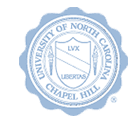NHPRC Electronic Records Fellowship Recipients
Click on recipient's name to view biographical and project information.
2004-2005 2005-2006 2006-2007 Jill Katte and David W. Mitchell
-----------------------------------------------------------------------------------------
2006-2007 Fellows
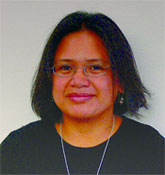
Daphne DeLeon
Background:
Daphne DeLeon received her Bachelor’s Degree in History with a minor in French (1989) and her Master’s Degree in History with a subspecialty in Archival Management (1994) from the University of California at Riverside. She has been a member of the Academy of Certified Archivists, Society of American Archivists, Society of Southwest Archivists, and the Historical Society of New Mexico since 1998. Ms. Arnaiz-DeLeon was employed by the New Mexico State Records Center and Archives from June 1998 to July 2007. She is currently the Division Administrator for the Nevada State Library and Archives.
Project abstract:
The Global XML Data Model – New Mexico Public Records will test the extensibility of the Global Judicial XML Data Model. Through an examination of the common New Mexico state government records as described in the general retention and disposition schedules for administrative (1.15.2 NMAC), personnel (1.15.6 NMAC) and financial (1.15.4 NMAC) records, information needs for the appropriate management of these electronic records will be distilled. A comparison between the identified information needs of the general records and the data structure and elements defined in the Global Judicial XML Data Model will be conducted. The project goal is to create a XML data model for common government records based on the Global Judicial XML Data Model.
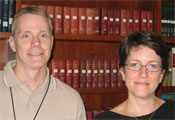
Don Chalfant & Kathy Jordan
Background:
Don Chalfant is the Archival Electronic Records and Special Media Coordinator for the Library of Virginia. He supervises the electronic records, audio, video, and film collections and is involved in the development of an electronic records archive for state, local, and private papers collected by the LVA. Most recently, Don was the Electronic Records Archivist for the South Carolina Department of Archives and History where he helped develop guidelines for the management of electronic records and assisted state agencies on electronic records issues. He earned a MSLS from the University of North Carolina-Chapel Hill and a BA in History from the University of North Carolina-Asheville.
Kathy Jordan is the Electronic Resources Manager for the Library of Virginia. As a member of the Information Technology Services Division, she works with Library staff to manage projects and develop policies related to electronic records and digital initiatives. Kathy joined the Library staff in 2000 and has also held the positions of Research Archivist for public services, as well as Archival Electronic Records Coordinator. She earned an MLS from Rutgers University, an MA in History from Lehigh University, and a BA in American Civilization and English from Lafayette College.
Project abstract:
The Library of Virginia is focused on developing workflows that will facilitate the processing and management of archival electronic records collected by our state, local, and private papers departments. This project will involve Archives processing staff in the workflow design, development, and testing stages to ascertain important procedural improvements and to evaluate any tools useful to the processes. In addition, the project will afford us an opportunity to explore the necessary technical, administrative, preservation, and descriptive metadata required to manage our digital content. A relational database will be created to serve as a processing tool for the 107 gigabytes of electronic records recently accessioned from the prior Governor’s administration. The database design should provide us a simplified and controlled means to open, view, and make decisions about individual electronic records and to assist staff in the preparation of digital objects for ingest into DigiTool, the Library’s Digital Asset Management system. The database should also provide a means to generate reports to help us better understand the nature of processing digital records.
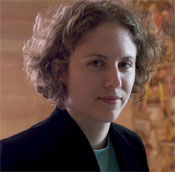
Erin O’Meara
Background
Erin O’Meara is currently the Electronic Records Archivist at the University of Oregon. Before joining the UO Library in 2005, she was a Records Management Analyst at the Oregon State Archives. She received her Masters of Archival Studies in 2004 from the University of British Columbia. While at UBC, Erin conducted research for the InterPARES 2 Project pertaining to archaeological records managed in a Geographic Information System.
Project abstract:
The volume of data being created at research institutions is increasing at rapid rates. Social scientists are not always allocating resources for recordkeeping throughout their projects. A framework is needed for effectively managing researchers’ work as an interconnected body of knowledge, not just stand alone segments of information. Archivists and records managers need to be involved as specialized consultants in research projects before the records creation stage in order assist in the design of systems that address issues of authenticity, long-term preservation, description and access. In order to effectively create a framework that addresses the needs of faculty at a mid-size university, I will be working with several faculty members in developing a scalable set of guidelines and processes. The primary product of this project will be an intellectual framework and technical prototype that provides core guidelines for faculty, relating to the management of their research papers.
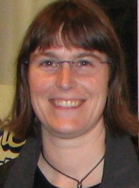
Kari Smith
Project Abstract:
Record keeping in the wine and grape industries is increasingly electronic. Using both commercial and homegrown systems, wineries and vineyards need to keep track of a substantial amount of production and sales data. The Bioterrorism Act of 2002 stipulated new record keeping requirements and retention periods for these records for wineries and vineyards. Compliance of the Act is necessary as of the summer of 2006 and will require wineries to document the lifecycle of their winemaking process from the growing of grapes through two years after their wine is shipped. Using a case study methodology, this researcher will investigate the record keeping requirements of the Bioterrorism Act of 2002 pertaining to the wine and grape industry, conduct a survey of current practice among winemakers of their use of electronic record keeping systems and records management procedures, investigate how software developers are incorporating the requirements of the Act into their systems, and complete a case study on the use of specific winemaking electronic systems to track the required data for the Act. The outcomes of the project will include recommendations to wineries and vineyards about electronic record keeping as well as recommendations to archives and records managers about retention and access to this information. The case study will have implications for record keeping in other industries that have been impacted by recent Homeland Security and related legislation.
------------------------------------------------------------------------------------- ----
2005-2006 Fellows
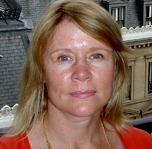
Carol Choksy
Background
Carol Choksy, Ph.D., is an Adjunct Professor at the School of Library and Information Science at Indiana University as well as a records management consultant. She has worked in nearly every industry including financial services, law, retail, and NGOs, as well as federal, state, and local government. Her research interests include how the practice of records management in the United States differs from archives, how organizational structure affects the success of records management programs, and how the definition of documents and records affects how well they are managed with a corporate and government environment. She is currently President-elect of ARMA, International.
Project abstract:
Metadata and media preservation are certainly very important in the management of electronic records, but just as important is the organizational structure, both formal and informal, for managing electronic records. Until very recently, records managers in corporations reported primarily to Facilities or Administration and had little input into any part of the management of electronic records. Information Technology departments implemented many different applications without knowledge of how records, documents, or content should actually be managed. Most of the products implemented: email, content management, even Microsoft Office were used to create and distribute documents without concern for finding the documents again, much less preservation or destruction. The net result have been major problems that have cost corporations millions of dollars in litigation discovery and clean-up, as well as lost opportunity costs-records can be used to improve business processes. As records managers have begun to report to the Legal department, Information Technology, and Compliance, their roles in the management of electronic records, and the management of electronic records, has changed dramatically.

Jill Katte and David W. MitchellBackground
Jill Katte became Technical Services Archivist/Encoding Specialist for the Rare Book, Manuscript, and Special Collections Library at Duke University in September 2006. Prior to this she was the Archivist for Student Life and Technical Services at the Duke University Archives from 2002 to 2006. She currently serves as Web Liaison for the Society of American Archivists Privacy and Confidentiality Roundtable, as a member of the NCEAD Standards Working Group and the NCEAC Policy Subcommittee, and as the webmaster for the Society of North Carolina Archivists. She holds a bachelor's degree from the University of Illinois at Urbana-Champaign and a master's degree from the University of North Carolina at Chapel Hill. Her current research interests include XML metadata for archives, digital preservation, and digital libraries.
David W. Mitchell, CRM, is the former University Records Manager at Duke University, where he developed and implemented its first comprehensive records and information management program. Prior to coming to Duke in November 2003, he served as Assistant State Records Administrator with the North Carolina Division of Historical Resources, Archives and Records Section. In that role he administered records management programs for North Carolina’s public agencies and served on the Electronic Records Task Force, Preservation and Access Task Force and the Disaster Response Team. In 1996, he attained the designation Certified Records Manager. He holds a Bachelor or Arts degree in Speech Communications from Wake Forest University and will graduate from North Carolina State University in December 2005 with a Master of Public Administration degree.


Marcia Frank Peri and Lisl Zach
Background
Marcia Frank Peri has been the archivist for the University of Maryland, Baltimore County since 1998. She is responsible for the University Archives, the collections of the Center for Biological Sciences Archives, and the manuscripts collections of several prominent photographers and science fiction writers. In 2003 she wrote the first UMBC Policy on Records Management and developed a streamlined system for ensuring the transfer of permanently valuable records to the archives. In addition to her work at UMBC, she has served as a consultant to numerous biological science societies, helping them to develop records management protocols and to set up archives programs. She is a member of the graduate faculty at UMBC, where she teaches a course on Archival Administration in the Public History Program. She has also presented lectures on archival management at the School of Information Studies, Louisiana State University. She is currently involved in the development of an e-records policy for UMBC and is working closely with the head of OIT to address the need for managing and preserving campus email, campus web pages, and web-based publications. She has an MLS for the University of Maryland—College Park and an MA in History from The Catholic University of America.
Lisl Zach, Ph.D., is an assistant professor at LSU’s School of Library and Information Science (SLIS), where she teaches in the areas of knowledge management and organization of information. Before coming to LSU, she spent almost 20 years working in various areas of administration and financial management, as well as directing and conducting applied research projects to identify ways of satisfying the information needs of user groups as diverse as field artillery officers, nuclear power plant operators, and symphony orchestra managers, staff, and volunteers. Her academic pursuits include studying the information seeking behavior of decision makers and investigating ways of measuring and communicating the value of information to organizations. She has carried out numerous benchmarking studies, user needs assessments, and information systems analyses, as a result of which she is familiar with many of the methodological issues related to qualitative research including various approaches to data collection, analysis, and presentation. She holds a Ph.D. in Information Studies from the University of Maryland—College Park, an MBA from New York University, and a MSLS from the University of North Carolina - Chapel Hill.
Catherine Arnott Smith and Nancy McCall
Catherine Arnott Smith, Ph.D., is an Assistant Professor at the School of Library and Information Studies, University of Wisconsin-Madison, and was formerly the same thing at the Syracuse University School of Information Studies (2002-2006). A former medical librarian, she was a National Library of Medicine predoctoral fellow in medical informatics at the Center for Biomedical Informatics at the University of Pittsburgh, from which she obtained her Ph.D. in September of 2002. Her dissertation topic was "The Clinical Document Architecture: XML for Enhanced Clinical Information Retrieval." In addition to the Ph.D. in Library/Information Science /Medical Informatics, she has found it necessary to acquire three master's degrees: the MA in American History/Administration of Archives (University of Michigan, 1992);the MILS in Information and Library Studies (University of Michigan, 1992); and the MS in Information Science/Medical Informatics (University of Pittsburgh, 2000). Her undergraduate degree was in American History and American Literature, from Tufts University (1981).
Nancy McCall is director of the Alan Mason Chesney Medical Archives of the Johns Hopkins Medical Institutions and a Research Associate in the Department of the History of Medicine of the Johns Hopkins University School of Medicine. Since 2000 she has been studying implications of the Privacy Rule of HIPAA for archival reference and research. She has delivered presentations and participated in panel discussions on archival implications of the Privacy Rule at meetings of the Society of American Archivists and Archivists and Librarians in the History of the Health Sciences. In January 2005 she testified before the
Subcommittee on Privacy and Confidentiality of the National Committee on Vital and Health Statistics on the impact of HIPAA legislation on the ability to access and utilize archival materials (see www.ncvhs.hhs.gov/05111p6.pdf). Currently she serves on the
HIPAA Committee of the American Association of the History of Medicine. The focus of her fellowship research is how EAD finding guides may be adapted to comply with the Privacy Rule of the Health Information Portability and Accountability Act (HIPAA) and how research of electronic documents that contain health information may be facilitated within the compliance requirements of the Privacy Rule.
Druscilla Simpson
Druscilla Simpson has been with the North Carolina State Archives since her college days when she was an intern from N.C. State University. She has worked in the reference room, processed and catalogued maps and state agency records, served as the registrar, and oversaw the online catalog, Manuscripts and Archives Reference System (MARS). She has been the manager of the Information Technology Branch for four years now. This branch is responsible for the technical support for more than 100 staff persons, the digitization program and the MARS system. She also works closely with processing archivists and the records analysts in the Government Records Branch on the identification, retention and disposition, and access for electronic records created by state and local government agencies.
Nancy M. Kunde, CRM, CA is records officer for the University of Wisconsin-Madison and is responsible for directing the campus records management program. She has been involved in numerous special projects within the University and State relating to archives and records management, and most recently she has participated on the interagency team that drafted Wisconsin’s administrative rule on electronic records management. She also cochaired the Public Records and Forms Board Task Group on Electronic Records which drafted the Guidelines for the Management of Electronic Information. Nancy is an active member of the Association of Records Managers and Administrators, the Society of American Archivists, and the Midwest Archives Conference. She has held a number of offices in these organizations.
Rebecca Schulte is the University Archivist at the University of Kansas in Lawrence, Kansas. Most recently she was the Head of Reader Services at KU’s Spencer Research Library and from 1985-2000 served as the Assistant Curator of the Kansas Collection, the University’s regional history library. After receiving an MA in Library Science from the University of Wisconsin--Madison in 1982 she managed one of the first NEH US Newspaper Program projects at the Kansas State Historical Society. In addition to serving as University Archivist, she is the Bibliographer of the Wilcox Collection of Contemporary Political Movements, one of the largest collections of American left and right wing extremist political material in the world.
Helen SamuelsHelen Samuels has researched the documentation of science, technology and institutions of higher education. Her publications propose the use of institutional functional analysis and documentation strategies as methods to improve the record of modern society. Varsity Letters: Documenting Modern Colleges and Universities, was published by The Society of American Archivists and Scarecrow Press in 1992. She is a Fellow of the Society of American Archivists. She came to MIT in 1977 as Institute Archivist and served in that capacity until January 1997 when she moved to the Provost’s Office where she worked on educational technology and policy issues. She retired from MIT in 2004.

